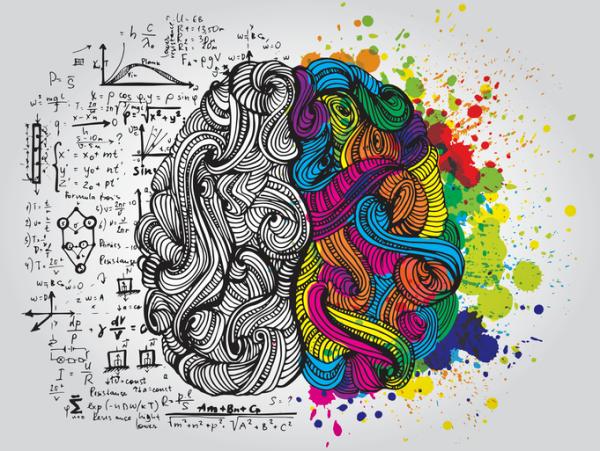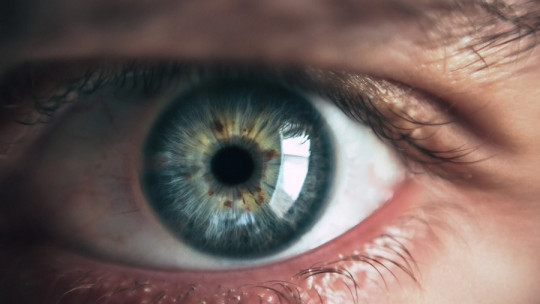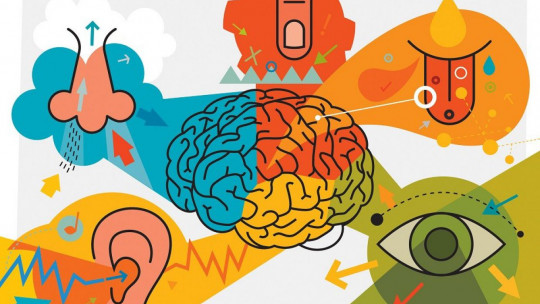Normally, human beings associate colors and shapes with the sense of sight, textures with touch, flavors with taste… but perhaps we have encountered people who claim to taste numbers or smell colors It is possible that many doubts may arise related to this topic. We may come to think that these people are lying to us or that they have some type of illness. However, the reality is very different.
What happens to these subjects is not a hallucination or a mental illness. Synesthesia is a curious characteristic that mixes the senses, creating a mental cocktail that translates into a perception of the world that is somewhat different from what others see. This phenomenon is studied from many points of view. In this PsychologyFor article, we will talk about What is synesthesia in psychology: causes and types
Synesthesia in psychology
We can define synesthesia within the field of psychology as the involuntary ability to relate stimuli with senses that do not correspond to these sensations. This unconscious relationship can occur at many levels and between the different senses of the body.
A synesthetic person is capable, for example, of relate a number to a sound sharp or seeing a certain color in the bitter taste. At first glance, this seems strange, typical of a mental pathology or the effect of some substance, but this phenomenon should not be confused with a medical condition. Synesthesia is not a disease , this is a curious ability that does not usually entail any problems. We could go so far as to say that we are all a little synesthetic.
Let’s take an example, below two ways will be shown, one of them is called Bouba and the other is called Kiki. Without knowing which is which, we must try to give them their corresponding name:

Causes of synesthesia
We normally associate Kiki to the pointed figure on the left and Bouba to the one on the right.
Why does this phenomenon occur to us?
There are many theories about the origin and causes of synesthesia However, it is a phenomenon under constant study and the exact reasons for this have not yet been identified. Some experts claim that all the neurons specialized in processing our stimuli are connected to each other and that, sometimes, involuntary circuits occur.
Other people claim that synesthesia is a limited capacity and only a few people can develop it. These experts affirm that there is a strong genetic component and that one must have specific mental characteristics to be able to experience this phenomenon.
Another reason provided by social psychology is that, since we have all been educated in a similar context, we associate sensory stimuli even though they have no real relationship. This theory maintains that if we associate black with sadness, it is because we have been raised in a culture where this color has always had negative connotations. If you want to know more about colors and their meaning, we recommend reading the following article about the psychological effects of colors.
Characteristics of synesthetic people
It is true that everyone can experience small synesthetic displays. However, there are individuals with a much greater capacity to relate the different senses to each other.
These people usually have a very powerful imagination, they are very creative and capable of processing many more stimuli than normal. Synesthetic people, for example, not only see the color red, but they smell it or can taste it. It is said that they are more intelligent and have a more developed memory, but there are no studies that demonstrate these theories. What has been shown is that they have a different way of seeing the world and relating to it.
It is difficult to define exactly how it works and what synesthesia is in psychology if we are not people with this type of developed characteristic. However, we can get an idea by looking at the artistic creations of these individuals, such as poems, songs or paintings. In fact, in the literature There is a resource called synesthesia. This literary resource It is based on attributing a sensory adjective to a stimulus to which it would not normally correspond.

Types of synesthesia
Although they share the same origin and a similar definition, there are different types of synesthesia depending on the interaction between the senses. The main types of synesthesia are the following:
- Associate Colored numbers and letters: like seeing the letter A in green or the 8 in red.
- Relate colorful musical sounds: Commonly known as musical synesthesia, this type is quite common among painters and other visual artists, these individuals usually put on pieces of music to make their creations.
- put flavors or colors at moments : this phenomenon is quite common, we all understand what a bitter situation or a gray day.
Other less common types are based on defining people or living beings with colors, relating sounds with smells or, in some cases, tasting colors.

Examples of synesthesia in psychology
- Add a pink color to the sweet flavor
- Smelling bitter while listening to a sad song
- See a bright color when we read something entertaining
- Relate the number 4 to the color blue
- See the words in a conversation
- Savor a happy situation
- Associate the acidic smell with a cold temperature
There are many varieties of synesthesia and multiple sensory combinations, all of them are part of a phenomenon that is constantly being studied and about which we still do not know much. With the passage of time and progress in research, we will be able to answer the question of “What is synesthesia in psychology? ” in a satisfactory manner.
This article is merely informative, at PsychologyFor we do not have the power to make a diagnosis or recommend a treatment. We invite you to go to a psychologist to treat your particular case.
If you want to read more articles similar to What is synesthesia in psychology: causes and types we recommend that you enter our Neurosciences category.








